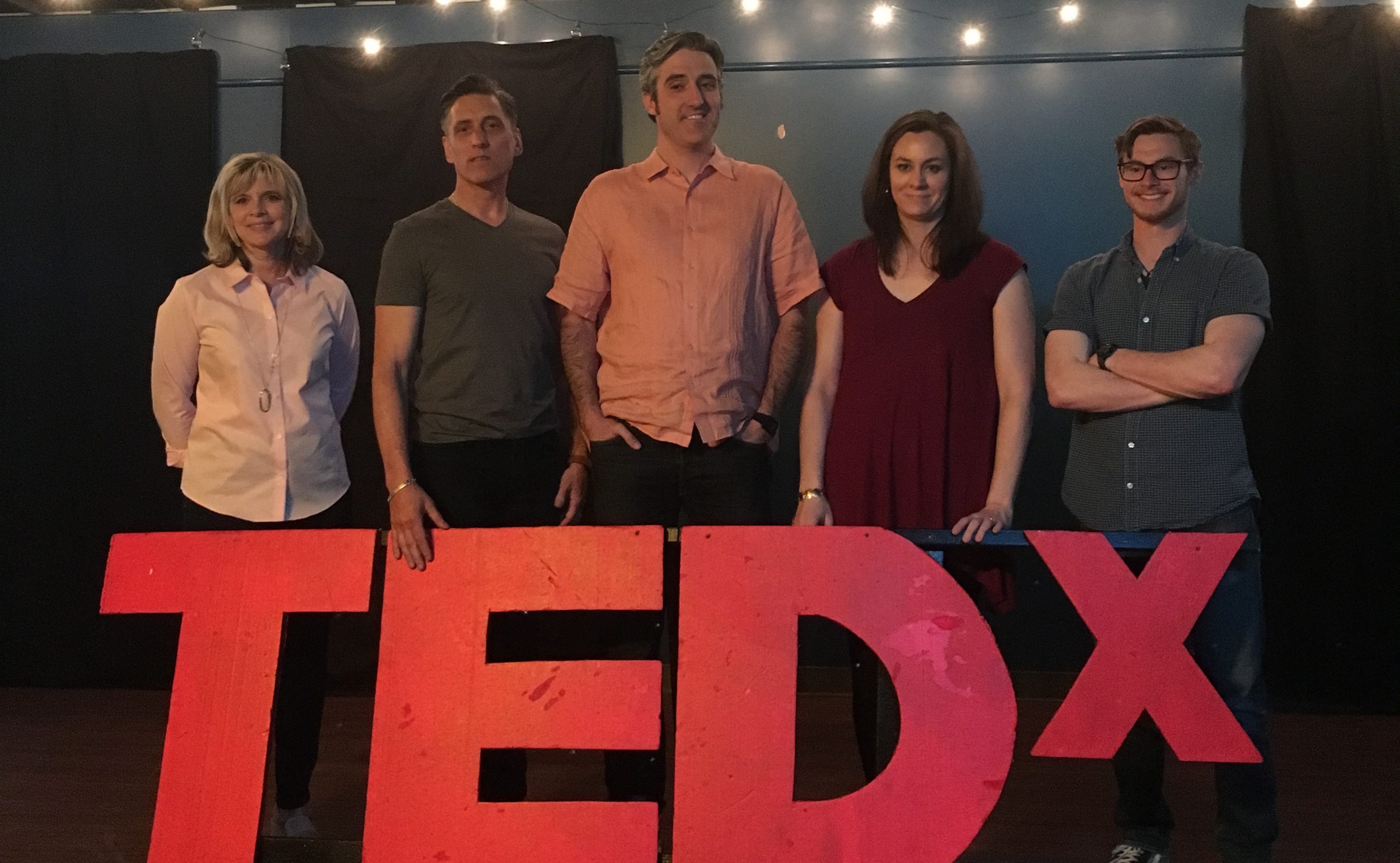Samford University hosted a independent TED talk on Thursday April 12, 2018.
Andy Christiansen, Taylor Robinson, Wendy Shuffett, Anne Riley, Nicole Pinkham and Luke Demarco spoke. The speakers discussed discovering purpose by embracing new perspectives.
For the past 10 years, author Anne Riley said she searched for purpose. As a Spanish teacher, she thought it was teaching. However, her responsibilities soon included comforting students. Many endured divorce and abusive relationships.
“I was getting out of bed everyday because of the students,” she said.
As students confided in her, she listened. All the time, she said she felt helpless.
In 2013, Riley said her purpose crystallized after her friend’s first daughter was diagnosed with a incurable and fatal genetic brain disease.
Besides being deadly, it was also untreatable, and the girl experienced constant seizures.
Then, their third daughter was also diagnosed with the same disease. Once again, Riley said she felt helpless.
Following the diagnoses, she seeked God for comfort. While in church she said God inspired her to share the girls’ stories.
Therefore, Riley and her cousin wrote the children’s book “Voyage to the Star Kingdom.” With every completed page, Riley cried. She said it’s about a storm that batters only one family’s home.
“I realized once again my occupation was being used as vehicle for my greater purpose,” she said.
Although, she said, people now utilize their talents only for jobs.
“The occupation itself isn’t the point, but rather a way to fulfill a purpose,” she said.
Luke Demarco also struggled discovering his purpose.
As a child, Demarco said he struggled seeing due to his nearsightedness. His vision was so blurry, Demarco felt like he was underwater. His parents finally purchased glasses.
Even though he could now see, Demarco said his privilege still shielded him from others’ pain.
As a child, Demarco said he never knew hunger. His mother angered him when she forced Demarco to finish his food.
He first saw hunger at age 6 while in San Francisco. As Demarco handed out burgers during Christmas, he saw a man eating from the garbage.
“I gave him a burger and he said, ‘God bless you.’ That was the first time that sentence meant something to me,” he said.
However, Demarco said his color-blind prejudices still prevented him from seeing injustice. Due to being a white upper-middle-class American, Demarco said he nevers fears for his life when pulled over by the police.
Consequently, he branded racial protesters as whiners. Demarco said he then realized he surrounded himself with people that think and look like him.
“I clinged to my perspectives only to realize I was wearing the wrong prescription the whole time. Our vision becomes piercingly nearsighted. Sometimes our lives need eye exams,” he said.
In high school, Demarco said he began feeling guilty about his skin color.
“I was fighting wars under my skin and the only weapon I had to keep people from peering into the trenches of my brokeness was a fake smile and the sentence I’m fine,” he said.
However, Demarco said he then embraced Jesus Christ and now serves others.
“I finally found hands that could hold my heart even though his palms were pierced,” he said.
While Demarco looked outward, Wendy Shuffett said she discovered her purpose locally. She’s a professor at Jefferson State Community College.
Shuffett said she first encountered Alabama’s human trafficking a year-and-a-half ago through her student. The student feared her friend was being sex trafficked.
Before this, Shuffett said she viewed trafficking as a distance issue. It happens in Bulgaria where Shuffett said traffickers kidnap approximately 10,000 girls a year. Most are under 12. It happens in India where she said 18 million slaves currently reside.
In the U.S., Shuffett said I-20 serves as America’s sex trafficking superhighway, and most victims eventually pass through Homewood’s Oxmoor Road.
Due to these experiences, she joined the Set Free Movement, which builds homes for groups traffickers target such as girls and orphans. She also educates students about Alabama’s human trafficking and buys fair-trade products which aren’t produced with slaves.
Three weeks ago, a Shelby County woman called her asking for the signs of human trafficking. The woman believed her friend was being trafficked. Shuffett said she’s now prepared.
“The end of slavery begins with us. We’re the ones that can bring about that change, healing, and freedom,” she said.
William Marlow, News Editor





